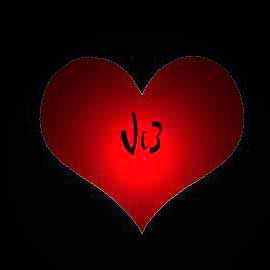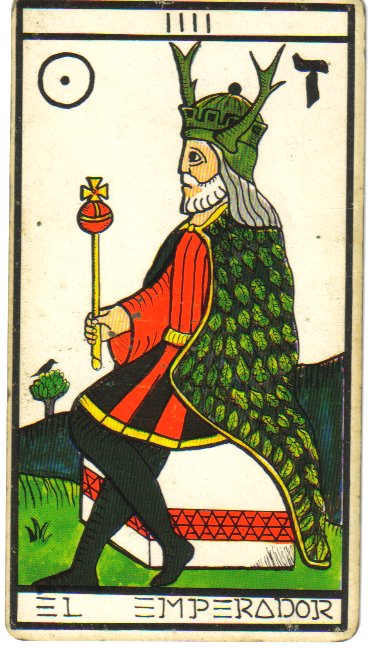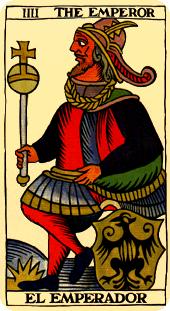 heart shaped world
heart shaped world
| fool | the magician |
high priestess | empress | emperor | hierophant | lovers | chariot | justice | hermit | wheel of fortune |
| strength | the hanged man | death | temperance | the devil | the tower | the star | the moon | the sun | judgement | the world |

The antithesis to the Empress, just as The Magician is to the High Priestess, though in a reverse order. Is this important? It could be: consider Marx on the Hegelian philosophy of History - the development of the thesis into its antithesis which is sublated by the synthesis, which conserves the thesis and the antithesis while at the same time abolishing it. Marx added the 'Aufhebung' - the synthesis element and gives us an elegant model explaining the the power swings and shifts that we can see throughout history (simplified into party politics in recent years). Dialectical materialism and all you wanted was a tarot card explained? Well, the power principles visibly at work in history at a state level can also be seen at individual and family levels. Marriage (Emperor and Empress are readily seen as Father and Mother) in its formal state is comparitively recent and mimics the King/Queen dyad. I could take you back to the dialectic here with Engels on the origins of the state and private property, or we could trek off into Structuralism with Claude Levi Strauss... just want you to appreciate what a rich vein of thought can be tapped with a simple printed card.
My Spanish deck shows the Emperor's notional 'Green Man' status and astrological Sun link. It recalls the 'King for a Day' period of Sun King sacrifices made to guarantee a good harvest and chillingly used in the cult film 'The Wicker Man'. The Emperor is expendable for the good of his people - man is expendable, woman not so (as she is reproductive).

The
power of The Magician refined and put to logical thinking. The
Emperor represents the structure-giving element, our desire for stability,
security, and continuity. He shows our striving for independence from the
conditionality of nature in all of its incalculability. He is the equivalent of
our drive for civilization with which we build houses, heating and air
conditioning systems to protect ourselves from heat, cold, and rain; cars and
airplanes so that we can travel more comfortably and quickly than is possible
on foot; and schools in order to secure a certain level of education. The Emperor uses his gifts to develop
authority and command together with displaying great analytic and problem
solving skills. He is the autocrat and
the potential tyrant in all of us, he is Ghengis Khan, Don Corleone and Mr
Gerber (my headmaster from schooldays).
In turn, we are all quite capable of being Ghengis Khan (and lets not
forget his good points), otherwise we’d never get anything done. The Emperor is that part of your parents you
hated for making you stay in and study, then tearfully eulogized later for
making you the success that you are. The
Emperor is that part of you that didn’t go to the pub, put in some extra work
and has now earned a promotion and a raise.
He’s that part of you that reorganizes the sitting room so it can
actually be used comfortably by everybody (the Empress is that part of you that
rearranges it again right afterwards so it isn’t comfortable for anyone but
looks fantastic). The Emperor’s big
thing is loyalty – and that means his to you as much as yours to him. He’ll always be there for you, until you let
him down. The Emperor
is gifted with the skills to successfully lead others. He can turn chaos into
order, provide structure to that which is unbound. He is quick of mind and
confident in his power and right to rule, and does so in a just manner.
Although stern by nature, he truly is the ultimate father figure. He will
provide as needed, teach those with unanswered questions, protect the
vulnerable and set and maintain boundaries. His perfect world runs on schedule
and is free of any disturbances. What the Emperor must be wary of is setting
boundaries and rules where none are needed. If he isn’t, he may well become a
tyrant.
